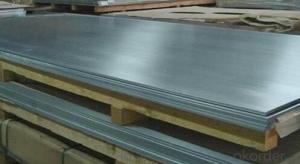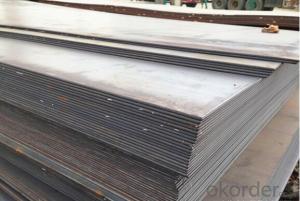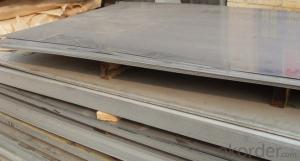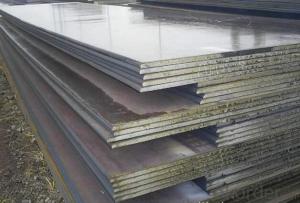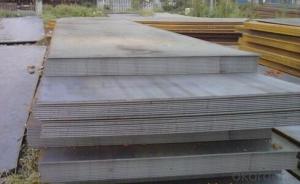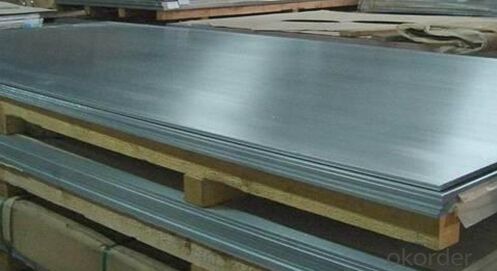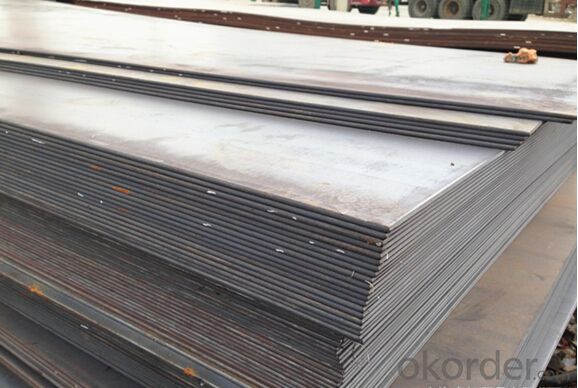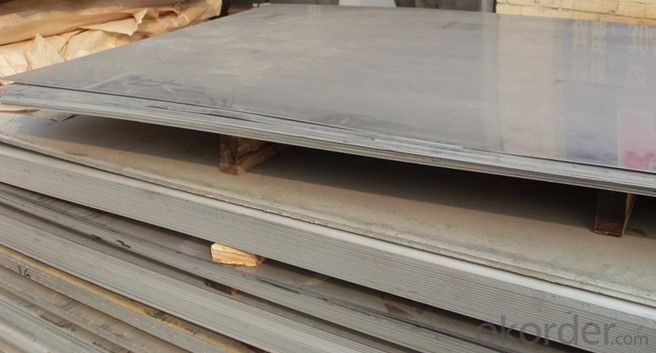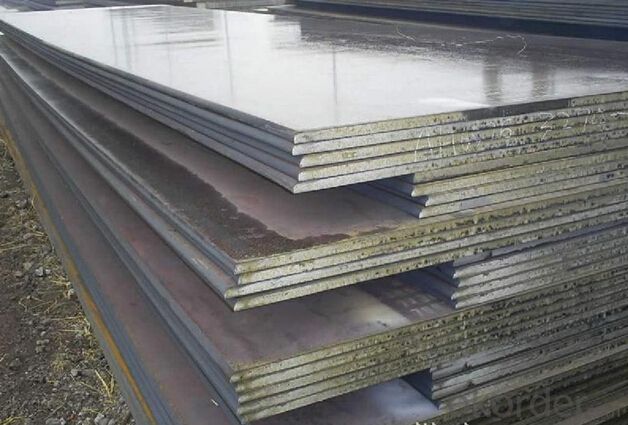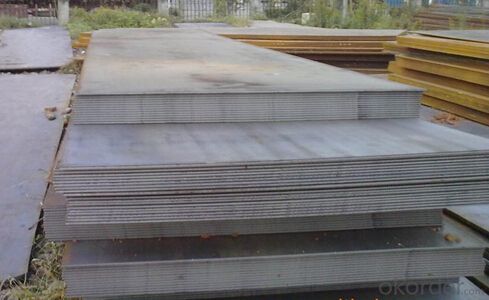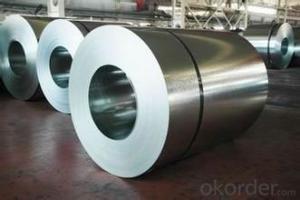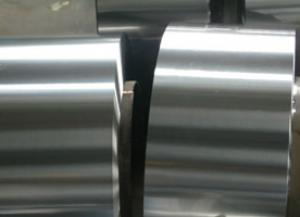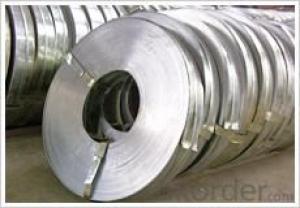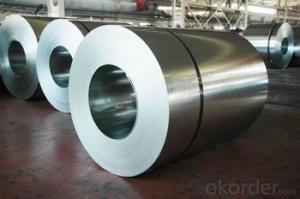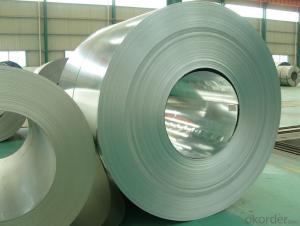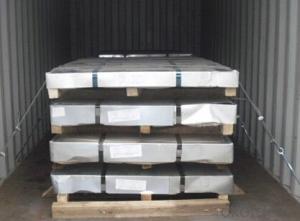SGS Approved DIN 1623 St12 Grade Cold Rolled Steel Sheet in Coils
- Loading Port:
- Tianjin
- Payment Terms:
- TT OR LC
- Min Order Qty:
- 3 m.t.
- Supply Capability:
- 100000 m.t./month
OKorder Service Pledge
OKorder Financial Service
You Might Also Like
Specification
SGS Approved DIN 1623 St12 Grade Cold Rolled Steel Sheet in Coils
Detailed Information of SGS Approved DIN 1623 St12 Grade Cold Rolled Steel Sheet in Coils
| C | Si | P | S | yield Strength MAp | Tensile strength MAp | Elongation % | ||
| A36 | 0.24 | 0.4 | 0.045 | 0.03 | 250 | 400-520 | 26 | |
| C | Si | Mn | P | S | Cu | |||
| A283 | ≤0.27 | 0.15-0.4 | ≤0.9 | ≤0.035 | ≤0.04 | ≥0.2 | ||
| Thickness: | 6mm, 8mm, 12mm, 16mm, 20mm, 25mm, 30mm, 50mm, 80mm, 100mm, 150mm, 200mm | |||||||
| Width: | 1500mm, 1800mm, 2000mm, 2200mm, 2500mm | |||||||
| Length: | 6000mm, 8000m, can cut to width and length | |||||||
| Packing Details; | according to customer‘s require or export’s standard | |||||||
| Delivery time; | 7 days for stock sizes, 20-25 days for new production sizes | |||||||
| Port: | Tianjin China | |||||||
Related Products Overviews of SGS Approved DIN 1623 St12 Grade Cold Rolled Steel Sheet in Coils
Product Name | Typical Grades | Diameter(mm) | Standard Adopted |
Carbon Steel | 20 (1020/S20C/C22) |
Ø16-Ø300 |
GB/SAE/ JIS/DIN |
40 (1040/S40C/C40) | |||
45 (1045/S45C/C45) | |||
Bearing Steel | GCr9 (51100/SUJ1) |
Ø12-Ø250 | |
GCr15 (52100/SUJ2/100Gr6) | |||
GCr9SiMn (A485-Gr.1/SUJ3) | |||
Cr-Mo Steel | 20Cr (5120/SCr420H/20Cr4) |
Ø12-Ø250 | |
40Cr (5140/SCr440/41Cr4) | |||
42CrMo(4140/SCM440/42CrMo4) | |||
Gear Steel | 20CrNiMo |
Ø16-Ø600 | |
20CrMn(5115/SMnC420/20MnCr5) | |||
20CrNiMo(8620/SNCM220/20CrMiMo2) |
Related Products Application of SGS Approved DIN 1623 St12 Grade Cold Rolled Steel Sheet in Coils
Carbon Steel | l Mold bottom l Plastic mold l Construction machinery parts l Automobile parts l Security grills l Screens l Construction |
Bearing Steel | l Aerospace l Navigation l Nuclear energy l Chemical industry l Electronic information l Petrochemical l Instrument and meter l Transportation |
Cr-Mo Steel | l Mechanism & Fasteners gear l Stressed components for vehicles l Engines and machines l Parts of larger cross-section |
Gear Steel | l All kinds of gears l Statically and dynamically stressed component for vehicles l Engines and machine l Larger cross-section parts l Crankshafts |
Company Introduction of SGS Approved DIN 1623 St12 Grade Cold Rolled Steel Sheet in Coils
CNBM International Corporation is the most import and export platform of CNBM group(China National Building Material Group Corporation) ,which is a state-owned enterprise, ranked in 270th of Fortune Global 500 in 2015.
With its advantages, CNBM International are mainly concentrate on Cement, Glass, Iron and Steel, Ceramics industries and devotes herself for supplying high quality series of refractories as well as technical consultancies and logistics solution.
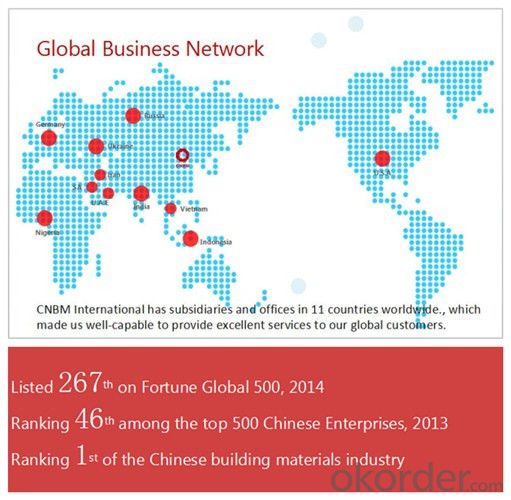
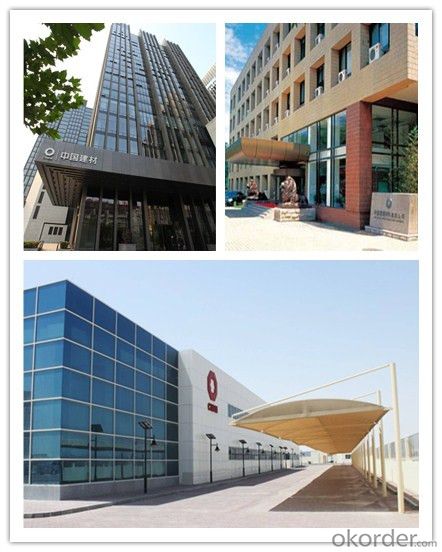
After-sale service | l CNBM provides the services and support you need for every step of our cooperation. We’re the business partners you can trust; you can relax and get on with doing business. l For any problem, please kindly contact us at any your convenient time, we’ll reply you in our first priority within 24 hours
|
Advantages
| l Industry experience over 20 years. l Shipment of goods -More than 70 countries worldwide. l The most convenient transport and prompt delivery. l Competitive price with best service. l High technical production line with top quality products. l High reputation based on best quality products.
|
Packaging & Delivery of SGS Approved DIN 1623 St12 Grade Cold Rolled Steel Sheet in Coils
Packaging Detail | Sea worthy packing /as per customer's packing instruction |
Delivery Detail | 15 ~ 40 days after receiving the deposit |
Products Show
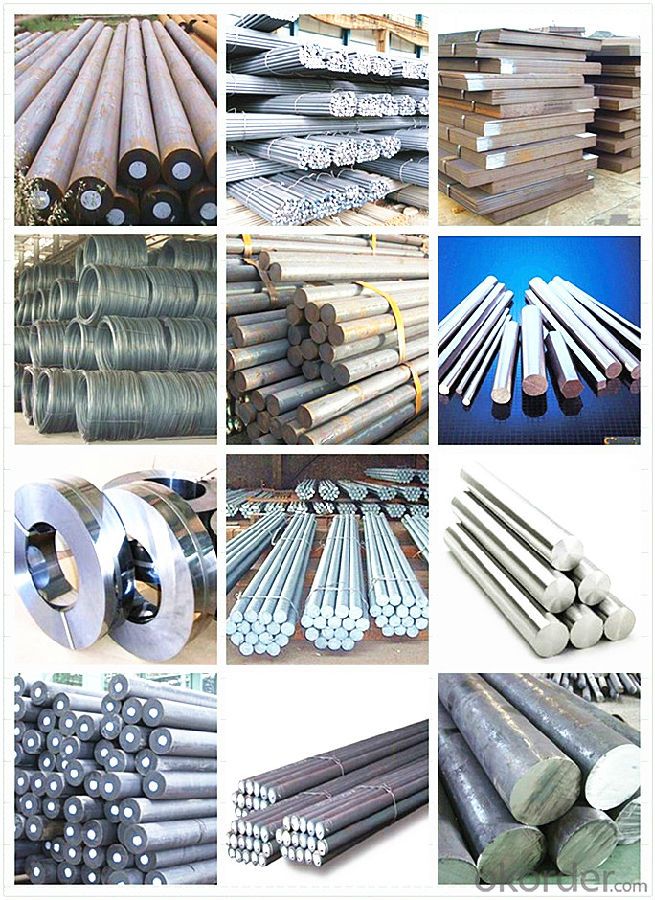
FAQ:
Are you a trading company or manufacturer? | Manufacturer |
What’s the MOQ? | 3 metric ton |
What’s your delivery time? | 15-35 days after downpayment received |
Do you Accept OEM service? | Yes |
what’s your delivery terms? | FOB/CFR/CIF |
What's the Payment Terms? | 30% as deposit,70% before shipment by T/T |
Western Union acceptable for small amount. | |
L/C acceptable for large amount. | |
Scrow ,Paybal,Alipay are also ok | |
Why choose us? | Chose happens because of quality, then price, We can give you both. Additionally, we can also offer professional products inquiry, products knowledge train (for agents), smooth goods delivery, excellent customer solution proposals. |
What's your available port of Shipment? | Main Port, China |
What’s your featured services? | Our service formula: good quality+ good price+ good service=customer's trust
|
Where are your Market? | Covering more than 160 countries in the world |
- Q: What is the impact of titanium in special steel alloys?
- Titanium has a significant impact on special steel alloys as it improves the strength, corrosion resistance, and heat resistance of the resulting material. It also helps in reducing the weight of the alloy while maintaining structural integrity, making it ideal for applications in aerospace, automotive, and medical industries.
- Q: What are the different methods for improving the tensile strength of special steel?
- There exists several approaches to enhance the tensile strength of special steel. 1. Alloying: Incorporating alloying elements like chromium, nickel, molybdenum, or vanadium into the steel is a widely used technique. These elements create solid solutions within the iron matrix, augmenting the steel's strength, hardness, corrosion resistance, and wear resistance. 2. Heat treatment: Employing heat treatment is another effective means to increase the tensile strength of special steel. Processes such as quenching, tempering, and annealing are commonly employed. Quenching involves rapidly cooling the steel from a high temperature, resulting in a hardened microstructure. Subsequently, tempering reduces brittleness and enhances the steel's toughness. Conversely, annealing necessitates heating the steel to a specific temperature followed by a slow cooling process, leading to the refinement of the grain structure and improved strength. 3. Cold working: Also referred to as cold rolling or cold drawing, cold working involves subjecting the steel to plastic deformation at low temperatures. This procedure elevates the dislocation density in the steel, resulting in strain hardening and improved strength. Cold working significantly enhances the tensile strength of special steel. 4. Grain refinement: Improving the grain structure of the steel can also enhance its tensile strength. This can be achieved through processes like recrystallization annealing, where the steel is heated to a specific temperature and gradually cooled to promote the formation of smaller and more uniform grains. Smaller grain size contributes to increased strength and improved mechanical properties. 5. Shot peening: Shot peening entails bombarding the steel's surface with tiny metallic or ceramic particles. This technique induces compressive stresses in the surface layer of the steel, inhibiting crack initiation and propagation. Ultimately, shot peening improves the steel's tensile strength and fatigue resistance. It is crucial to consider that the selection of the method to enhance tensile strength depends on the specific application and requirements of the special steel. Various combinations of these methods can be employed to achieve the desired mechanical properties.
- Q: How does special steel perform in terms of impact resistance?
- Special steel typically performs very well in terms of impact resistance. Due to its unique composition and manufacturing process, it is able to withstand high amounts of force and pressure without fracturing or breaking. This makes it highly suitable for applications where impact or shock loads are common, such as in construction, automotive, and aerospace industries.
- Q: What are the common challenges in machining special steel?
- To achieve desired results, effective addressing of several common challenges is necessary when machining special steel. The high hardness and toughness of special steel pose one of the primary challenges. These steels are often alloyed with various elements to enhance their properties, resulting in increased hardness and resistance to wear and corrosion. Consequently, specialized cutting tools and techniques are required to counter increased tool wear and reduced tool life. Another challenge arises from the low thermal conductivity of special steel. Poor heat dissipation properties lead to heat accumulation during machining, which can cause thermal deformation, resulting in dimensional inaccuracies and poor surface finish. Overcoming this challenge and preventing thermal damage necessitates the implementation of proper cooling and lubrication techniques, as well as appropriate cutting speeds and feeds. In addition, the complex microstructures of special steels, stemming from their alloying elements, can lead to uneven material removal and surface finish. Consequently, the machining process becomes more unpredictable and challenging. To ensure consistent and accurate results, careful selection of cutting parameters, tooling, and machining strategies is essential. Furthermore, some special steels may exhibit work hardening tendencies during machining. As the material is cut, it becomes harder and more resistant to further cutting. This work hardening phenomenon escalates cutting forces, tool wear, and diminishes surface finish. To counter this challenge, appropriate cutting speeds, feeds, and tool geometries must be utilized. Lastly, the complexity of composition and the requirement for specialized tooling and equipment contribute to higher manufacturing costs associated with special steels. Selecting suitable cutting tools, fixtures, and machining processes may necessitate additional investment and expertise. Thus, comprehending the specific characteristics and challenges of machining special steel is vital for efficient and cost-effective production.
- Q: What are the different grades of special steel?
- Special steel is classified into various grades based on its chemical composition, physical properties, and intended use. Some common grades include tool steel, stainless steel, alloy steel, and high-speed steel. These grades offer unique characteristics and are utilized in different industries such as manufacturing, construction, automotive, and aerospace.
- Q: How does quenching and tempering affect the hardness of special steel?
- Quenching and tempering are heat treatment processes used to improve the hardness and mechanical properties of special steel. During quenching, the steel is rapidly cooled from a high temperature to room temperature or below, typically by immersing it in a quenching medium such as oil or water. This rapid cooling causes the formation of a martensitic structure, which is characterized by a high hardness and brittleness. The hardness of the steel increases significantly as a result of quenching. However, the brittleness of the martensitic structure makes it unsuitable for many applications. To alleviate this issue, the steel is then subjected to tempering. Tempering involves reheating the quenched steel to a temperature below the lower critical temperature, typically between 200-600 degrees Celsius, and holding it at that temperature for a specific period of time. This process allows for the transformation of the brittle martensite into a more ductile structure known as tempered martensite. The tempering process leads to a reduction in hardness but imparts improved toughness and ductility to the steel. The hardness of the steel after tempering will depend on the tempering temperature and time, with higher temperatures and longer times resulting in a greater reduction in hardness. By carefully controlling the tempering parameters, it is possible to achieve a balance between hardness and toughness that is suitable for the intended application. In summary, quenching and tempering greatly affect the hardness of special steel. Quenching increases the hardness by forming a martensitic structure, while tempering reduces the hardness but improves the toughness and ductility of the steel. The specific hardness achieved through these processes can be controlled by adjusting the quenching and tempering parameters to meet the desired mechanical properties for the specific application.
- Q: What are the different nitriding techniques used for special steel?
- There are several nitriding techniques used for special steel, including gas nitriding, salt bath nitriding, plasma nitriding, and ion nitriding. These techniques involve exposing the steel to a nitrogen-rich environment, which allows nitrogen atoms to diffuse into the surface of the steel, forming a hardened layer. Each technique has its own advantages and is suitable for specific applications based on factors such as the steel composition, desired hardness, and surface finish requirements.
- Q: How does special steel contribute to the defense machinery industry?
- Special steel contributes to the defense machinery industry by providing superior strength, durability, and resistance to corrosion. This type of steel is specifically designed to meet the demanding requirements of military applications, ensuring that defense machinery can withstand harsh environments, extreme temperatures, and heavy use. By utilizing special steel, the defense industry can produce high-performance weapons, vehicles, and equipment that are essential for national security and defense capabilities.
- Q: How does the hardness of special steel affect its machinability?
- The hardness of special steel has a significant impact on its machinability. In general, as the hardness of the steel increases, its machinability decreases. Machinability refers to the ease with which a material can be machined or shaped using various machining processes such as cutting, drilling, or milling. Hardness is a measure of a material's resistance to indentation or scratching. It is typically measured using the Rockwell hardness scale or the Brinell hardness test. Special steel, which is known for its high strength and durability, often has a higher hardness compared to other types of steel. When machining special steel, a harder material poses challenges for several reasons. Firstly, harder materials are more difficult to cut, as they require higher cutting forces and generate more heat during the machining process. This can lead to increased tool wear and shorter tool life, resulting in higher production costs. Secondly, hard steel tends to have lower ductility and toughness, making it more prone to cracking or chipping during machining. This can lead to poor surface finish, dimensional inaccuracies, and even component failure. Moreover, the increased hardness of special steel also affects chip formation. Harder materials tend to produce shorter and more segmented chips, which can cause issues with chip evacuation and tool clogging. This can further hinder the machining process and affect the overall productivity. To improve the machinability of hard special steel, various strategies can be employed. The selection of appropriate cutting tools with specific geometries and coatings designed for hard materials is crucial. Additionally, optimizing cutting parameters such as cutting speed, feed rate, and depth of cut can help reduce the negative effects of hardness on machinability. In conclusion, the hardness of special steel has a direct impact on its machinability. As the hardness increases, the machinability decreases due to increased cutting forces, higher tool wear, reduced ductility, and chip formation challenges. However, with proper tool selection and optimization of cutting parameters, the machinability of hard special steel can be improved, enabling efficient and cost-effective machining processes.
- Q: What are the key differences between special steel and tool steel?
- Special steel and tool steel are both types of steel that have specific properties and applications. However, there are some key differences between the two. 1. Composition: Special steel is a broad term that encompasses a variety of steel alloys with specific properties for different applications. It can include stainless steel, high-strength alloy steel, and heat-resistant steel, among others. On the other hand, tool steel is a specific type of special steel that is designed to be used in the production of tools, dies, and molds. Tool steel typically contains higher levels of carbon and other alloying elements like chromium, vanadium, or tungsten, which enhance its hardness, wear resistance, and toughness. 2. Hardness and wear resistance: Tool steel is known for its exceptional hardness and wear resistance, which makes it ideal for cutting, shaping, and forming materials. It can withstand high temperatures and resist deformation, ensuring the longevity of tools and dies. Special steel, on the other hand, may not have the same level of hardness and wear resistance as tool steel, as its properties vary depending on the specific alloy and application. Special steel alloys may prioritize other properties like corrosion resistance or strength. 3. Manufacturing processes: Tool steel is often produced through specialized manufacturing processes like hot working, cold working, or heat treatment to achieve the desired properties. The production of tool steel involves precise control of temperature and cooling rates to achieve the required hardness and toughness. Special steel, on the other hand, may undergo various manufacturing processes depending on the desired properties. These can include forging, casting, or heat treatment, among others. 4. Applications: Tool steel is primarily used in the production of tools, dies, and molds for manufacturing processes such as cutting, shaping, and forming materials. It is commonly used in industries like automotive, aerospace, and machinery. Special steel, on the other hand, has a wide range of applications depending on the specific alloy and properties. It can be used in industries such as construction, energy, and manufacturing, where specific properties like corrosion resistance, heat resistance, or strength are required. In summary, the key differences between special steel and tool steel lie in their composition, hardness, wear resistance, manufacturing processes, and applications. While special steel is a broad term for various steel alloys with specific properties, tool steel is a specific type of special steel designed for tooling applications. Tool steel is characterized by its exceptional hardness and wear resistance, making it ideal for cutting and shaping materials, while special steel can have a broader range of properties depending on the specific alloy and application.
Send your message to us
SGS Approved DIN 1623 St12 Grade Cold Rolled Steel Sheet in Coils
- Loading Port:
- Tianjin
- Payment Terms:
- TT OR LC
- Min Order Qty:
- 3 m.t.
- Supply Capability:
- 100000 m.t./month
OKorder Service Pledge
OKorder Financial Service
Similar products
Hot products
Hot Searches
Related keywords
